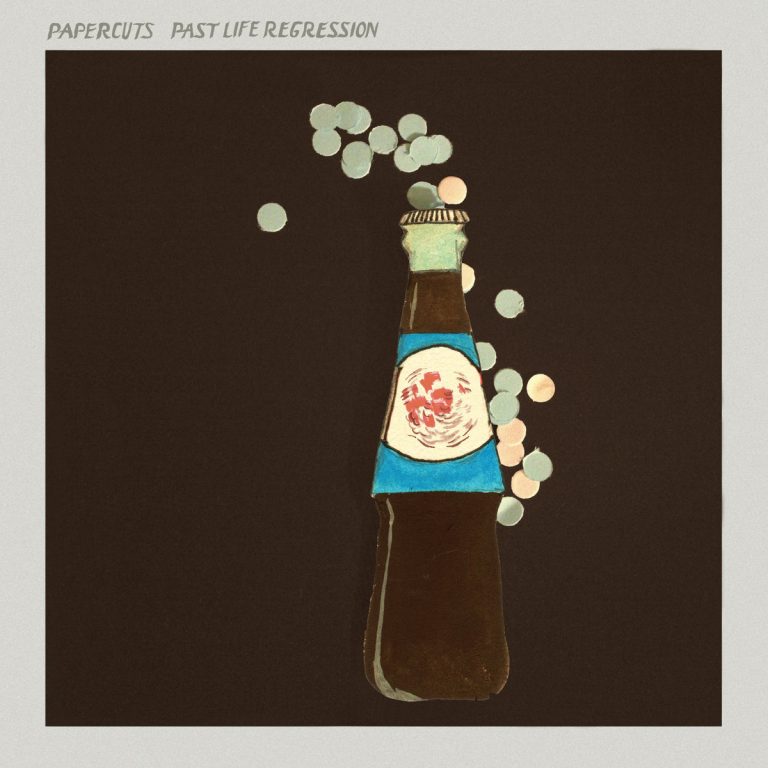For nearly two decades Jason Quever has been slicing through bedroom pop as the wince-inducing project Papercuts, a task he’s handled individually for most of it, with a revolving door of collaborators. Quever pokes his head out every three or four years with a new album, and while the aesthetic hasn’t evolved much since 2009’s You Can Have What You Want, there’s still something genuine about the music of Papercuts that is endearing.
It’s this endearment that extends into Quever’s seventh album Past Life Regression, a continuation from last year’s sparse Baxter’s Bliss EP. The last full length from Papercuts came in 2018, the somewhat lopsided Parallel Universe Blues, which was far removed from Quever’s high point of 2011’s Fading Parade.
Quever’s always tried to combine his personal inflections with that 2000s-era indie sound that was prevalent with bands like Deerhunter and Chad VanGaalen. As the project has aged it hasn’t deviated from that sound much. There are still evident throwbacks to that rough aesthetic that aren’t dissuading but do tend to leave a lot to be desired.
Easily traceable influences like The Velvet Underground come to the forefront on “Fade Out”, an early highlight of Past Life Refression that trades in 60s-style lo-fi. Quever’s vocals are always in unison with the music, acting as an additional layer of haze to his transient rhythms. The Papercuts brand is on point here, fitting comfortably with the best of his catalogue.
The drab stylings of Quever can overstay their welcome at times, but the absurdist “I Want My Jacket Back” has wit and charm rolled into it’s fuzzy jangle pop base. There’s a whiff of sentimentality here as Quever is clearly over the rampant political discourse and pandemic talk. He longs for the calmness, doesn’t want the conflict, just wants to get his jacket back and to leave.
There’s quite a bit of Galaxie 500 still in the mix too, from Quever’s Wareham-esque vocals to the soft and gloomy production, but he isn’t doing a Today homage even if it does land adjacently to that sound. This marriage of influences is traditional to Papercuts though, and remains here; one minute Quever’s hailing early Primal Scream on “Sinister Smile”, the next minute he’s emulating Echo and the Bunnymen on “Palm Sunday”.
It’s a moody piece, obviously, and even the brightest spots of a Papercuts album are full of self-criticism and doubt, but that’s always been this project’s schtick. Past Life Regression doesn’t craft any new formulas for Papercuts, but it’s still consistent with what people have come to expect from the band.

